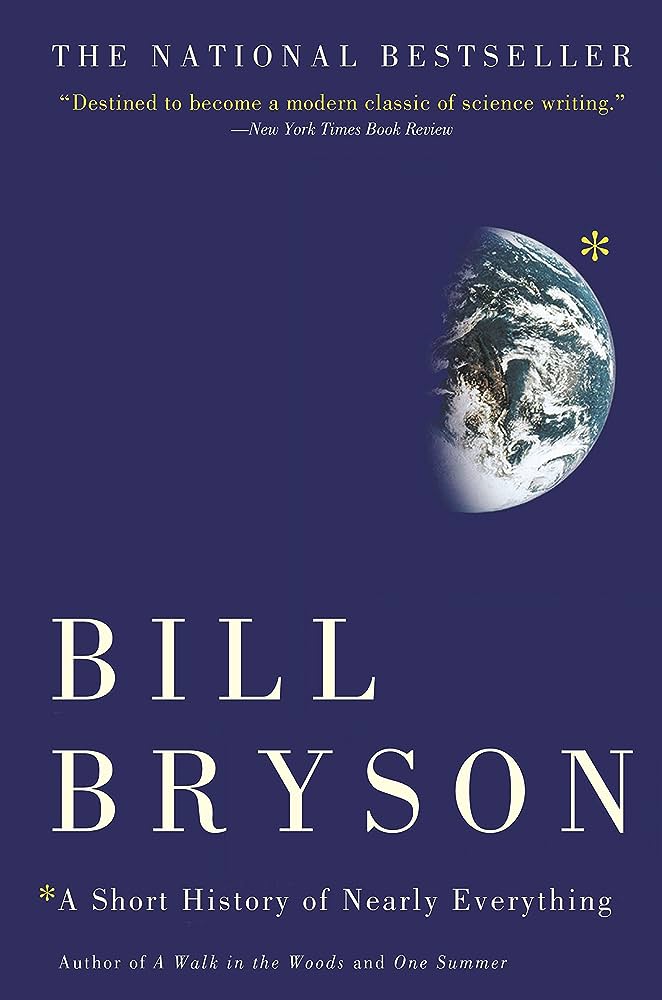
A Short History of Nearly Everything
Author: Bill Bryson Category: History Published: January 1, 2003 Language: English File Size: 28.5 MB Tags: Historical | History | Humor | Nonfiction | Philosophy | Physics | Science |Theme:
In A Short History of Nearly Everything by Bill Bryson, explores the theme of existence, awe, and survival.
Summary:
In this novel, Bill Bryson argues that life on Earth is essentially a long shot. The slightest differences in cosmic, geological, and biological events throughout Earth’s history would have prevented life from being created at all.
It explores the most important past scientific discoveries in a truly fascinating way. Not only can you find out exactly how scientists went about measuring the distance between the Earth and the Sun, but you can also read about feuds between famous scientists with opposing viewpoints.
Famous Quotes:
Protons give an atom its identity, electrons its personality.
Energy is liberated matter, matter is energy waiting to happen.
Life just wants to be; but it doesn’t want to be much.
Geologists are never at a loss for paperweights.
Taxonomy is described sometimes as a science and sometimes as an art, but really it’s a battleground.
Most of what has lived on Earth has left behind no record at all.
Consider the Lichen. Lichens are just about the hardiest visible organisms on Earth, but the least ambitious.
In terms of adaptability, humans are pretty amazingly useless.
What sets the carbon atom apart is that it is shamelessly promiscuous.
A physicist is the atoms’ way of thinking about atoms.
He wrote authoritatively on magnetism, tides and the motions of the planets, and fondly on the effects of opium.
The universe is an amazingly fickle and eventful place, and our existence within is a wonder.
The core of a neutron star is so dense that a single spoonful of matter from it would weigh more than 500 billion kilograms.
Physics is really nothing more than a search for ultimate simplicity, but so far all we have is a kind of elegant messiness.
There are three stages in scientific discovery. First, people deny that it is true, then they deny that it is important; finally they credit the wrong person.
Literary awards:
- Samuel Johnson Prize for Non-Fiction Nominee (2004)
- EU Descartes Prize for science communication (2005)
- J. A. Hollon palkinto (2006)
Back
